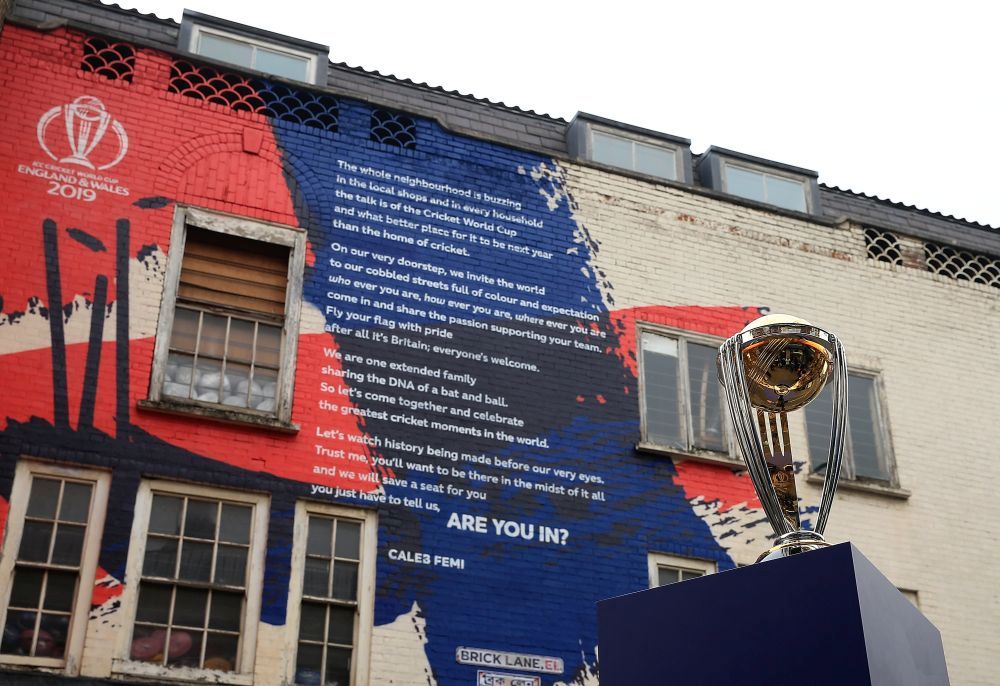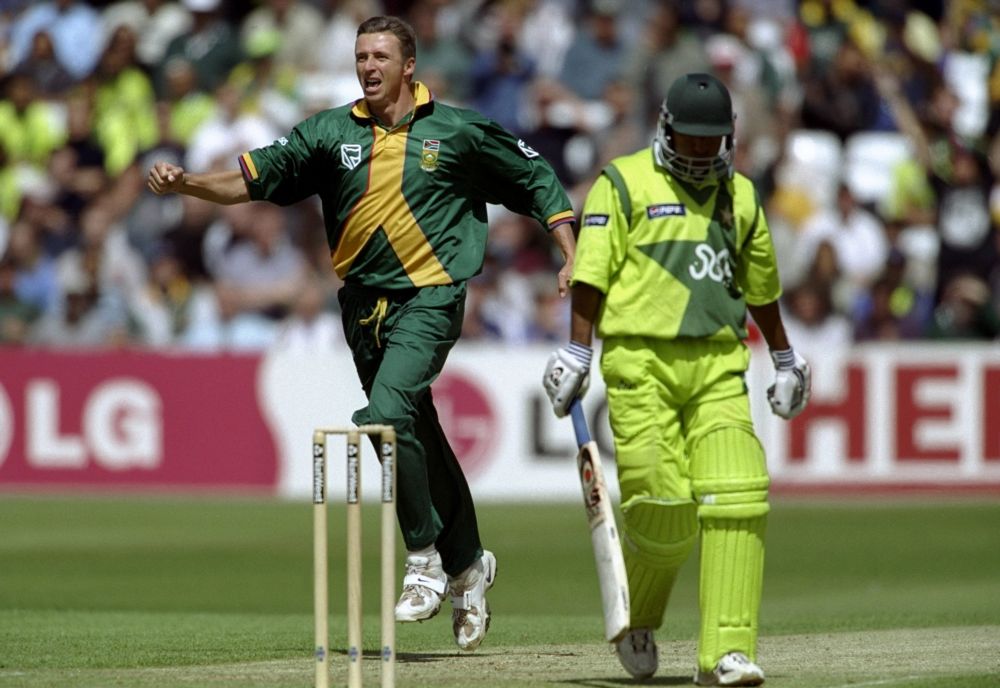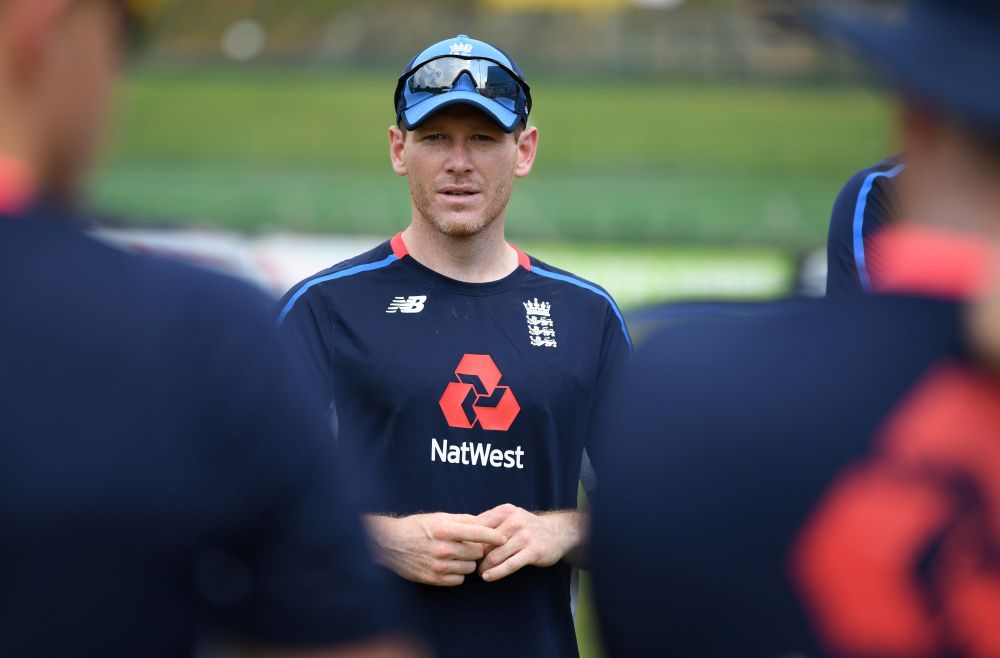
Steve Elworthy has developed a unique specialism in organising tournaments over the past decade but Cricket World Cup in England and Wales will be the most significant challenge of his career. He tells SportsPro about delivering one of 2019’s biggest events and building the momentum to transform the English game.
Steve Elworthy will be speaking at SportsPro Live, which is taking place in London, 30 April – 1 May 2019. Find out more information here.
Few know more about the business of planning global cricket tournaments. A former player who represented South Africa on their return to the international fold in the 1990s, he led the organising committee for the first ever ICC World Twenty20, which was held in his homeland in 2007. After following the tournament to England and Wales for its second edition two years later, he began to develop a real specialism.
In the past decade, Elworthy has helmed a succession of International Cricket Council (ICC) events: the ICC Champions Trophy, the secondary men’s One-Day International (ODI) competition, in 2013 and 2017, and the Women’s Cricket World Cup in 2017. Each has been a commercial and popular success. None of them, however, quite matches up to what comes next.
In June and July, England and Wales will host the men’s version of the Cricket World Cup – still viewed as the pinnacle of the sport, even through the blizzard of bilateral series and domestic franchise properties that has swept across the calendar. Elworthy was appointed as managing director of the tournament in July 2016. He understands the altered nature of this challenge both implicitly, and as informed by conversations with fans and partners between the Champions Trophy and Women’s World Cup.
“They just get it,” he says, speaking to SportsPro over the summer. “‘World Cup, I get that. I know what a World Cup is, I understand that.’ The level of engagement between the two was marked. It was completely different.
“I think there’s an element of that being this fantastic momentum behind women’s sport and particularly women’s cricket, and then for England to win the final was unbelievable for the sport. But even well before that, when we saw the ticket sales and were going to speak to local governments or external stakeholders or schools or people wanting to be involved in it, when you say the words ‘World Cup’ they come with a certain gravitas.”
The pressure is on to “deliver a World Cup experience” again but this time, on a different magnitude. The “cricket bubble”-facing Champions Trophy events brought 15 games in 18 days, and the Women’s World Cup had 31 in a month. In this year’s competition, a “relentless” schedule will feature 48 games over just under 60 days across 11 venues. To give an idea of the size of the operation, Elworthy points to the 350 training sessions planned for the competing squads at matchday venues and outgrounds.
“You just think of that training piece – that on its own is a complete logistical challenge,” Elworthy says.

Photo by Ben Hoskins/Getty Images
Elworthy is sitting in a meeting room at England 2019’s London offices, a floor above those of the England and Wales Cricket Board (ECB) by Lord’s Cricket Ground. “We did this for a reason: because we needed to be this close to the ECB because we’re relying on their departments, their infrastructure, to help us deliver a lot of these things from a tournament point of view,” he explains.
The sport’s most celebrated venue will host the final on 14th July but the opening game between England and South Africa, across the British capital at The Oval, is altogether closer: the first ball is bowled on 30th May. Elworthy believes the organising committee is “in a really good space”.
The ICC is responsible for “the global landscape” of the Cricket World Cup, including sponsorship sales and digital strategy. Indian media giant Star holds the global media rights already as part of a wider deal running from 2015 to 2023, and is in charge of sub-licensing those rights internationally.
England 2019’s task is primarily logistical. Fundamentally, though, Elworthy sees his team’s role as sitting between the global governing body and the domestic one, and satisfying the objectives of both. For the ECB, as for most major event hosts, that means creating a moment of national excitement that can be converted into generational benefit.
“We want to reach a million children – under-16s – between now and the World Cup,” Elworthy says. “We want to engage with them, we want to get them to play, we want them to engage with Cricket World Cup. How’s that going to be funded? That’s going to be funded out of the revenue that’s generated from the tournament.”
Ticket sales will be the key method of drumming up that income. The main ballot was held over the summer and expectations are healthy. Yet English cricket grounds are modestly sized – Lord’s, with its capacity of around 30,000, will be the biggest in use at the time of the tournament – and the activities around the venues, including inner-city events and fan zones, will be vital in ensuring the World Cup is “not seen as another 48 one-day internationals”.
“That planning is really ramping up now,” Elworthy says, “where we’re getting to the point where we’re getting stuff integrated into schools programmes, into curriculums; clubs signing up to be Cricket World Cup clubs and having open days, screening the Cricket World Cup and having taster sessions and really opening their doors for people to come down, not necessarily just the membership.”
Converting the opportunity
England was the scene of the World Cup during its formative years, hosting the first three editions in 1975, 1979 and 1983, but it is a more recent experience that is etched deepest in the national cricketing psyche. The 1999 event began in May drizzle with a damp squib of an opening ceremony; commercial interest was muted; the hosts departed in the first group stage, infamously before the official tournament song had been released for UK sale.
Elworthy remembers those few weeks differently. The South Africa side he represented were arguably the best involved; their dramatic semi-final elimination against Australia was the dramatic peak of an often highly watchable competition. England’s failures were well-rehearsed through the 90s anyway, and local fans happily settled in to enjoy the tournament without them. For Elworthy, the welcome he enjoyed at that time inspires many of his hopes for next summer.
“I suppose the image, when you close your eyes and think about what the World Cup [in 2019] is going to be,” he says, “I just want to see colour, vibrancy, full grounds, people having a fantastic time supporting their team – just that massive enthusiasm that we know is out there. And World Cups bring that, World Cups garner that. We’ve just got to make sure that we enhance it in spades, that people have the opportunity.”

5 Jun 1999: Steve Elworthy of South Africa takes the wicket of Saeed Anwar of Pakistan in the World Cup Super Six match at Trent Bridge in Nottingham, England. South Africa won by 3 wickets. Mandatory Credit: Laurence Griffiths /Allsport
Much like the 1999 tournament – which came before the revolutionary dawn of Twenty20 and the rise of India as cricket’s financial superpower – next year’s event will likely sit between two eras in the English game. The 2018 summer, in which England welcomed India for an enjoyable sequence of limited-overs and five-day Test matches, was the last of a template that has been well established for a decade or more.
A new UK£1.1 billion TV deal, which kicks in from 2020, will herald something altogether different. Live coverage of cricket in England will return to free-to-air television for the first time since 2005. A majority of those games carried by the BBC, the junior partner in a set-up involving pay-TV outlet Sky Sports, will be from a radical new tournament with eight new teams and a bespoke playing format.
The Hundred is a hugely contentious short-form concept in which – as the name indicates – each team will face 100 balls apiece, making each game fractionally shorter than a T20. It is being explicitly targeted at a new audience but its announcement has alienated vocal swathes of the established cricket community, with a series of experimental proposals that have trickled into the media getting an unforgiving reception.
The full and confirmed details of both format and competition will emerge by the end of the year and Elworthy chooses not to comment on either. Nonetheless, he is acutely conscious of the role the Cricket World Cup must play in stirring up interest among the unconverted, not least families and the very young, throughout a high-profile summer which also sees Australia stay on for Test cricket’s celebrated Ashes series.
Elsewhere at the tournament, one altogether more committed group of fans can be expected to turn out in force. Cricket is barely less popular among some of Britain’s South Asian communities than it is back on the subcontinent but, historically, administrators in the UK find it difficult to make a connection with often distinct fanbases. Tournaments provide a different context, however, and in 2017 the Champions Trophy enjoyed something of a festival experience around games involving Asian sides.
In May, the ECB unveiled an 11-point South Asian Action plan to help bring those two cultures together. The World Cup will provide a vital opportunity to advance those aims, as UK-based and UK-born supporters turn out to watch Afghanistan, Bangladesh, Sri Lanka and – in particular – India and Pakistan, who met in the Champions Trophy final last year. Old Trafford in Manchester will be the venue as they collide again on 16th June. A sell-out crowd and blockbuster TV audience are a given.
The organisers have developed a “technology and data strategy” to learn as much as they can about all of these audiences – under the reciprocal terms of new GDPR regulations – and communicate with them more intelligently once the tournament passes. They are being assisted in this by ticketing partner Ticketmaster and data agency Two Circles.
“There’s definitely a knowledge transfer piece,” Elworthy adds. “We’re currently collating that as we speak so we will hand over a huge amount of insight and data and what have you to either the ECB or the venues, depending on the opt-ins. But the other side of it is that there will be staff who transition across. Part of the reinvestment of the money that’s generated from the ticketing sales, there’s a number in there that’s been ring-fenced.”
In every department, Elworthy insists, there have been efforts to capitalise on an ambitious approach to the Cricket World Cup. Even some of its failures have yielded unexpected benefits. For much of the planning phase it was hoped that the 60,000-seater London Stadium, the centrepiece of the 2012 Olympic Games which is now home to Premier League soccer’s West Ham United, would be pressed into unlikely service as a venue for major games.
That vision was thwarted by sunshine – it wasn’t possible to find a pitch configuration that would keep the light out of batsmen’s eyes in the height of the afternoon. But in the process of undertaking feasibility studies, considerable knowledge was accrued that will transform the use of temporary ‘drop-in’ pitches for temporary and permanent cricket venues in the UK.
“We’ve got three drop-in pitches growing up in Loughborough,” Elworthy reveals. “We’ve got two more going into the ground that are coming into Lord’s here. Groundsmen all over the country are now talking about drop-in technology.”
« Groundsmen all over the country are now talking about drop-in technology »
Taking the field
Where the impact of those innovations will only be felt in the years to come, one Cricket World Cup tweak is a nod to the past. Following the ICC’s contentious and much-challenged decision to cut the tournament from 14 teams to ten, the format next year will revert to the one used in South Africa in 1992. Every team will play each other once in a round-robin opening group phase, with the top four advancing to a knockout semi-final and final stage.
From an organisational point of view, there are advantages. Broadcasters will have most of their schedules guaranteed already, while Star will be particularly thrilled to have at least nine India games to sell. Elworthy points out that ticket-buying fans will know exactly where their teams will be for several weeks, rather than having to plot a course through knockout brackets.
“They can follow their team wherever they go,” he says.
While confident that the round robin will have the benefit of keeping qualification questions alive deep into the opening round – “you could be fifth, sixth or seventh and you could be one game away from a semi-final space, but you could be fourth and you could be one game away from being seventh” – he accepts that maintaining interest will be challenging in a tournament without the regular escalation of jeopardy that other formats provide.
The most competitive games are being teased through the opening round, while the biggest draws are generally scheduled for weekends. “We have the inner-city fan zones on weekends when people aren’t at work,” Elworthy adds.
The shortened guest list also makes for some colourful absentees. Afghanistan’s remarkable World Cup story continues but Ireland, who have beaten established sides in the last three competitions, and Scotland, who stunned England earlier this year, will be among those most frustrated to miss the cut. Both were edged out in an extremely competitive qualifying tournament in March, as were Zimbabwe, who hosted that event and had played in every World Cup since 1983.
Zimbabwe-born Elworthy sympathises with those players and fans but from his perspective, the organisers have been working with a ten-team set-up since 2013. Those who are involved, he believes, will provide spectacle enough.
“We’ve got five Asian teams in this World Cup,” he says, “plus the West Indies, so it plays hugely into the strength of the diversity of this country and the number of people who we are going to get attending these matches, which is just incredible.”
Then there are the hosts. The events of successive summers have given England’s cricketers something to live up to in 2019. The women’s team hit newspaper front pages last year when they beat India to become world champions at a sold-out Lord’s. And in 2018, the English public fell in love anew with their men’s soccer team, who defied expectations to reach the last four of the Fifa World Cup in Russia. Elworthy would be delighted if next year’s tournament can capture the imagination in a similar way.

For Eoin Morgan and England the World Cup is about more than just winning on home soil
“You’ve got to understand some of the cricket parameters – I get that – but you would be silly not to learn from what happened over those six weeks,” he says of the World Cup summer just gone. “It was just outstanding, it really was. It gripped a nation.
“But, you know, that goes to the engagement of the England football team, it goes to the way they conducted themselves, it goes to the coach and how he fronted up to the media. It was that real piece of engagement that they weren’t necessarily aloof and something special. It was feet-on-the-ground stuff.”
England’s men have often been behind the curve in one-day cricket. They have never won a global tournament in the 50-over format and since reaching the final in 1992, their record in World Cups is dismal. But since a first-round exit in Australia and New Zealand three years ago, something has been shaken loose.
Under head coach Trevor Bayliss, who will step down when his contract expires at the end of next summer, England’s white-ball teams have developed a fearless, accelerated style. They lead the world rankings in ODI cricket ahead of India and will go into next year’s tournament as favourites.
“If you ask [England captain] Eoin Morgan whether going into the tournament as the number one team is something he thinks about, he embraces it,” Elworthy says. “They’re playing good cricket; they’re playing some unbelievably brave cricket in some of the innings and bowling performances we’ve seen. But they’re coming up against some incredible talent.”
Their performance will be way beyond Elworthy’s control, of course. But whatever happens, he does promise that the England 2019 team will pursue a similarly bold agenda off the field for a competition he hopes “could change the face of cricket in this country or could change it globally”.
“Without breaking too many confidences around the plans we’ve got to keep the excitement going,” he says, “from the outset we’ve really been ambitious with our thinking. We’ve not allowed ‘business as usual’ as a phrase within the four walls at Cricket World Cup. We are challenging business as usual outside of absolutely everything in the way we deliver it.”
Steve Elworthy will be speaking at SportsPro Live, which is taking place in London, 30 April – 1 May 2019. Find out more information here.







Laisser un commentaire